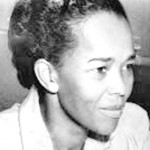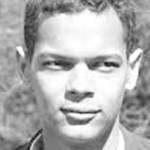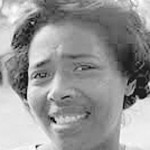HBCU students who led the Civil Rights Movement and Freedom Rides
15th February 2021 · 0 Comments
By C.C. Campbell-Rock
Contributing Writer
Editor’s note: This is the second in a series focusing on some of the country’s iconic graduates of HBCUs and their accomplishments.
It is a historic fact that the accomplishments made during the modern Civil Rights Movement and beyond would not have happened without the youth and 20-somethings, Black and white, who put their lives on the line to end the practice of American Apartheid and to ensure that Blacks’ Constitutional rights were enforced. From protest marches to Freedom Rides and Voter Registration Campaigns, these civil rights activists carried on the Civil Rights Movement that began when enslaved Africans did whatever was necessary to gain freedom from oppression and suppression.
Many of the HBCU students who became notable civil rights activists were members of the Student Non-Violent Coordinating Committee (SNCC), Congress of Racial Equality (CORE), Student Central Committee of the Nashville Christian Leadership Council (Nashville Student Movement), Southern Christian Leadership Conference (SCLC) and the Voter Registration Project during the 1960s. Some HBCU students were even engaged in non-violent civil rights activism before those groups emerged.
As we continue to celebrate Black History Month, The Louisiana Weekly offers the following snapshot of the life-changing feats these HBCU students accomplished.
The Greensboro Four
On February 1, 1960, four African-American college students in Greensboro, North Carolina, refused to leave a Woolworth’s “whites only” lunch counter without being served. The Greensboro Four – Ezell Alexander Blair Jr. (North Carolina A&T State University, Howard University Law School), David Richmond (North Carolina A&T State University), Franklin Eugene McCain (North Carolina A&T State University) and Joseph McNeil (North Carolina A&T State University) – were inspired by the nonviolent protest of Gandhi. The Greensboro Sit-In, as it came to be called, sparked similar “sit-ins” throughout the city and in other states.
Ella Josephine Baker – Shaw University; Fisk University
Ella Baker was an educator, organizer and civil and human rights activist. She worked alongside W.E.B. Du Bois, Thurgood Marshall, A. Philip Randolph and Martin Luther King Jr. She also mentored emerging activists such as Diane Nash (Howard University; Fisk University), Stokely Carmichael (Howard University), Rosa Parks (Alabama State Teachers College for Negroes), in her role of primary advisor and strategist for the Student Nonviolent Coordinating Committee (SNCC).A veteran civil rights organizer and SCLC official, Ella Baker envisioned an independent organization composed of and led by students. She invited Black college students who had participated in the early 1960 sit-ins to an April 1960 gathering at Shaw University in Raleigh, North Carolina. In May 1960, the group constituted itself as the Student Non-Violence Coordinating Committee (SNCC) and Marion Barry (Fisk University) was elected SNCC’s first chairman. In early August, SNCC staff members James Forman and Paul Brooks (Fisk University), began planning a Freedom Ride in solidarity with Robert F. Williams (Johnson C. Smith University).
Bruce Boynton – Howard University
Bruce Boynton is said to have inspired the Freedom Rides in the early 1960s. The law student took a bus headed to Alabama in 1958. Public facilities including bus stations were separated by race across the South at the time, despite federal laws banning segregation in interstate travel. The bus stopped at a Richmond, Va., station and Boynton went inside to eat. Convicted of trespassing, Boynton appealed his case. Thurgood Marshall, then the nation’s leading civil rights attorney and later on to become the first Black Supreme Court justice, was his counsel.The Supreme Court ruled in 1960 that federal discrimination prohibitions barring segregation on interstate buses also applied to bus stations and other facilities linked to interstate travel. The next year, dozens of Black and white students, known as the Freedom Riders, set out on buses to travel the South and test whether the ruling in the case, Bruce Boynton v. Virginia, was being followed. They became the Freedom Riders.
The Freedom Riders and civil rights activists, chiefly HBCU students, fought unlawful segregation of public transportation in the South and segregation of restaurants, bus terminals, and waiting rooms and public facilities. Some risked their lives down South rode across the South doing voter registration campaigns. They were beaten, arrested and some died trying to ensure that the laws against segregation were enforced.
Those participating in the Freedom Rides were members of SNCC, CORE, and the Nashville Student Movement, including Diane Nash (Fisk University and Howard University), John Lewis, Bernard Lafayette and James Bevel (American Baptist Theological Seminary in Nashville), Ruby Doris Smith-Robinson (Spelman), Julian Bond (Morehouse College) and Stokely Carmichael (Howard University), among others.
Julian Bond – Morehouse
Julian Bond was a Civil Rights Movement activist, politician, professor and writer. While a student at Morehouse College in Atlanta, Georgia, during the early 1960s, he helped establish the Student Non-violent Coordinating Committee (SNCC). In 1971, he helped found the Southern Poverty Law Center in Montgomery, Alabama, and served as its first president for nearly a decade. Bond served in the Georgia House of Representatives, the Georgia State Senate and was chairman of the National Association for the Advancement of Colored People (NAACP).Reverend Cordy “C.T.” Vivian – American Baptist Theological Seminary
The Reverend Cordy Vivian was the oldest of the Nashville Riders. A close friend of James Lawson, he had gained the trust of the students involved in the Nashville Student Movement by participating in the 1960 Nashville sit-in campaign to end lunch counter segregation. On May 24, 1961, he was arrested in Jackson, Miss., on the formal charge of breach of peace and imprisoned at Parchman State Prison Farm.One of the Civil Rights Movement’s most respected and revered figures, he was named director of Southern Christian Leadership Conference (SCLC) affiliates in 1963, and later founded and led several civil rights organizations, including Vision, the National Anti-Klan Network, the Center of Democratic Renewal and the Black Action Strategies and Information Center (BASIC).
James Leonard Farmer Jr., Wiley College
James Farmer, a co-founder of CORE and the initiator and organizer of the first Freedom Ride in May 1961, had members all across the South, including in New Orleans. CORE’s membership included several New Orleanians who held sit-ins, protest marches and were part of the Freedom Rides in 1961: David “Dave” Dennis Sr. (Dillard University), field secretary for CORE of Louisiana; Rudy Lombard (Xavier University), who organized CORE of New Orleans including sisters Oretha Castle Haley and Doris Castle (Southern University in New Orleans); Jerome Smith (Southern University in Baton Rouge); Cecil Carter (Dillard University); Doratha “Dodie” Smith-Simmons (Southern University); sisters Alice, Jean and Shirley Thompson (Southern University in New Orleans); and Ronnie Moore (Southern University in Baton Rouge).The original group of 13 Freedom Riders – seven African Americans and six whites – left Washington, D.C., on a Greyhound bus on May 4, 1961. Their plan was to reach New Orleans, La., on May 17 to commemorate the seventh anniversary of the Supreme Court’s Brown v. Board of Education decision, which ruled that segregation of the nation’s public schools was unconstitutional.
They traveled together on interstate buses but were brutally attacked by mobs of Ku Klux Klansmen in Anniston, Alabama. After they were assaulted in Birmingham, Alabama, and under pressure from the Kennedy administration, CORE announced it was discontinuing the action. Diane Nash called for new riders. Heeding the call were Oretha Castle Haley, Jean C. Thompson, Rudy Lombard, James Bevel, Marion Barry, Angeline Butler (Fisk University), Stokely Carmichael, John Lewis and Hank Thomas (Howard University. Bernard Lafayette, American Baptist College, Frederick Leonard, Tennessee State University), Allen Cason (Tennessee State University), Ivor Moore (Morris College), Mae Francis Moultrie (Morris College), Catherine Burks-Brooks (Tennessee State University), Ernest Patton (Tennessee State University), Joseph Perkins (Kentucky State University), Charles Persons (Morehouse College), William “Bill” Harbour (Tennessee State University), Glenda Gaither Davis (Claflin University), Benjamin Elton Cox (Livingstone College; Howard University), and Dr. Pauline Knight-Ofosu (Tennessee State University).
The rides continued on May 20, 1961. On May 24, 1961, a group of Freedom Riders departed Montgomery for Jackson, Mississippi. They traveled on to a savage beating in Montgomery, Alabama, to arrest in Jackson, Mississippi, for trespassing and to confinement in the Maximum Security (Death Row) Unit of the infamous Mississippi State Penitentiary – “Parchman Farm.” The rides continued over the next several months, and in the fall of 1961, under pressure from the Kennedy administration, the Interstate Commerce Commission issued regulations prohibiting segregation in interstate transit terminals.
Victoria Gray Adams – Wilberforce College
Adams was a field secretary for the SNCC, a voter registration trainer and literacy teacher. Many African Americans at the time were illiterate, which prevented them from registering, so she taught individuals to read, write and understand the Constitution. In her role as field secretary for the SNCC, Adams led a boycott against Hattiesburg businesses. She was a co-founder of the Mississippi Freedom Democratic Party, along with Fannie Lou Hamer and Annie Devine. During the Freedom Summer of 1964, Adams helped open the Freedom Schools that pushed for civil rights in Mississippi.Hollis Watkins – Tougaloo College
Watkins was a county organizer for 1964’s “Freedom Summer,” and worked with the Mississippi Freedom Democratic Party to unseat the regular Mississippi delegation from their chairs at the 1964 Democratic Party national convention in Atlantic City. He founded Southern Echo, a group that gives support to other grassroots organizations in Mississippi. He also is a co-founder of the Mississippi Veterans of the Civil Rights Movement.To learn more about the HBCU students who participated in the Freedom Rides and the Civil Rights Movement, visit www.history.com/topics/civil-rights-movement/civil-rights-movement-timeline.
This article originally published in the February 15, 2021 print edition of The Louisiana Weekly newspaper.










